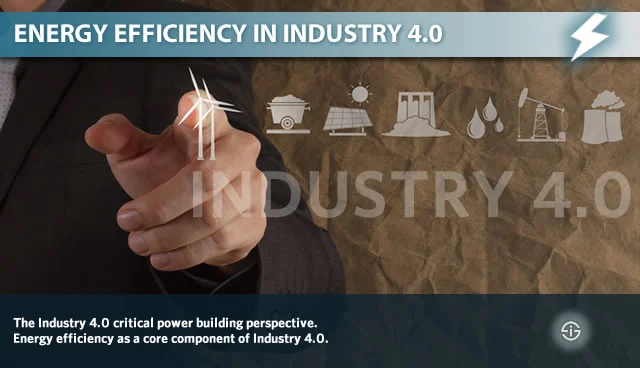
In the bustling realm of Industrial Manufacturing, a quiet revolution is underway, paving the way for a greener and more sustainable future. Let’s delve into the intricate world of the Industrial Energy Efficiency Revolution, exploring its profound impact on the manufacturing landscape.
“Innovation in energy efficiency is the key to a sustainable industrial future.”
Understanding the Need for Efficiency
In the heart of every factory and production line, energy consumption plays a pivotal role. Energy Efficiency is not just a buzzword; it’s the need of the hour. To comprehend the significance, let’s break it down in simpler terms. Just like a car uses fuel more effectively when it’s well-maintained, factories can produce goods more sustainably by using energy efficiently.
The Technological Overhaul
Smart Machines: Boosting Efficiency in Every Whirr
In the past, machines were just that – machines. Today, they’re smart, akin to having a brain of their own. Smart machines in the industrial realm are equipped with sensors and advanced algorithms, allowing them to optimize energy usage. It’s like upgrading from a basic phone to a smartphone – smarter, faster, and more efficient.
IoT Integration: Connecting the Dots for Energy Savings
Imagine a web where your toaster talks to your fridge, ensuring they work together seamlessly. This is the essence of the Internet of Things (IoT) in industrial settings. By connecting machines and systems, IoT ensures that energy is used judiciously, reducing waste and increasing overall efficiency.
The Green Transformation
Renewable Energy Adoption: Harnessing Nature’s Power
Just as we switch to solar panels for our homes, industries are increasingly turning to renewable energy sources. Solar panels on the factory roof? It’s not just a sight; it’s a statement. Embracing renewable energy reduces reliance on traditional power sources, curbing emissions and contributing to a cleaner environment.
Waste Heat Recovery: Turning Waste into Productivity
Factories generate a lot of heat – think of it as a byproduct. Instead of letting this heat go to waste, industries are now capturing and repurposing it. It’s akin to recycling – taking something discarded and turning it into something useful. In factories, waste heat recovery systems convert excess heat into power, ensuring nothing goes to waste.
The Economics of Efficiency
Cost Savings: Doing More with Less
In the world of business, the bottom line matters. Improving energy efficiency isn’t just about being eco-friendly; it’s also a smart financial move. Less energy consumption means lower utility bills, translating to more profits for businesses. It’s a win-win – good for the planet and the pocket.
Government Incentives: A Push in the Right Direction
Governments worldwide are recognising the need for a greener industry. To encourage businesses to embrace energy efficiency, various incentives and subsidies are being offered. It’s like getting a reward for doing the right thing – a little push in the right direction.
Challenges on the Road to Efficiency
Technological Barriers: Overcoming the Learning Curve
While the benefits are clear, implementing energy-efficient technologies isn’t always a walk in the park. Industries face a learning curve in adapting to new systems. It’s akin to learning to ride a bike – challenging at first, but once you get the hang of it, the journey becomes smoother.
Initial Costs: Investing for Future Gains
Upgrading systems for energy efficiency requires an initial investment. It’s like planting a tree – you invest time and effort upfront, but in the long run, you reap the rewards. Industries need to see beyond immediate costs and envision the sustainable future they are contributing to.
Looking Ahead: A Greener Tomorrow
Global Impact: Industry Leading the Green Charge
The Industrial Energy Efficiency Revolution isn’t confined to borders. It’s a global movement where industries worldwide are joining hands for a common cause – a sustainable future. It’s like a relay race, with each industry passing the baton to the next in the pursuit of a greener tomorrow.
Continuous Innovation: The Engine of Progress
In the world of industry, innovation is the driving force. As technology evolves, so does the potential for greater energy efficiency. It’s like upgrading software – each new version comes with enhanced features, making the system more efficient and effective.
Practical Application
Let’s imagine a factory owner, Sarah, in the heart of Industrial Manufacturing. She decides to embrace the Industrial Energy Efficiency Revolution. Sarah installs smart machines and connects them through the Internet of Things (IoT). Result? Her factory operates like a well-oiled machine, using energy more wisely. Sarah sees reduced energy bills, and her business flourishes. The practical application is simple: like fixing a leaky faucet to save water, Sarah’s factory tweaks its energy use, saving money and helping the environment.
Real-world Impact
Now, picture a city filled with factories adopting energy-efficient practices. Air becomes cleaner, and the carbon footprint shrinks. People breathe fresher air, and the environment thrives. This isn’t just a dream – it’s the real-world impact of the Industrial Energy Efficiency Revolution. From small towns to bustling cities, the positive ripple effect touches us all, making the world a better place.
“Efficiency is not just a choice; it’s a responsibility we owe to our planet.”
Conclusion:
In the tapestry of Industrial Manufacturing, the thread of energy efficiency weaves a narrative of sustainability and responsibility. The Industrial Energy Efficiency Revolution is not just a choice; it’s a responsibility we owe to our planet and future generations. As industries embrace this revolution, they not only secure their own future but also contribute to a greener, more harmonious world. So, let’s not just talk about change; let’s power the change, one energy-efficient machine at a time.
Remember, the future is in our hands – let’s make it an efficient one.

Allen‑Bradley PLC Systems

Delta PLC Systems
Automation























